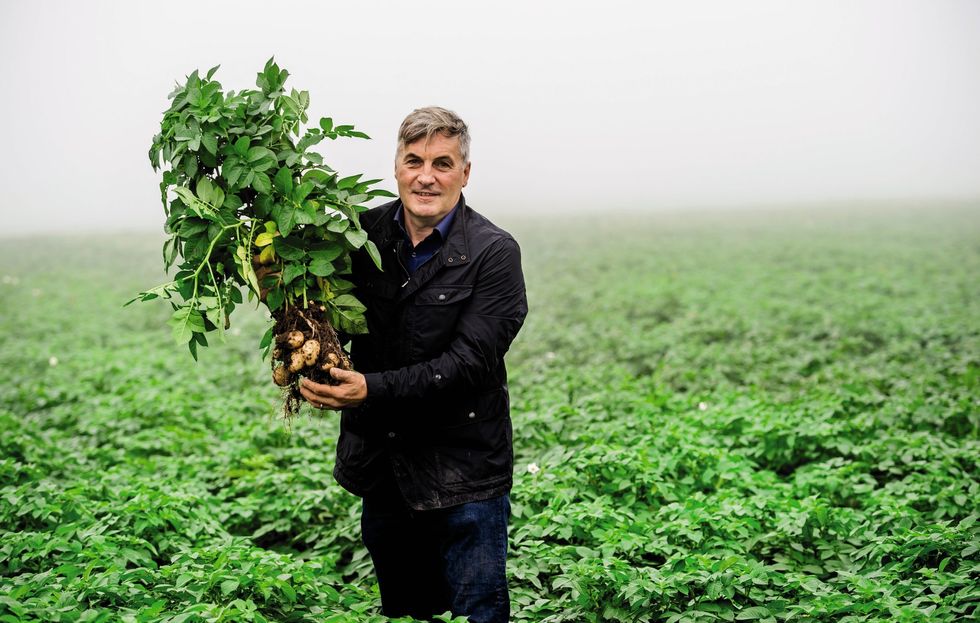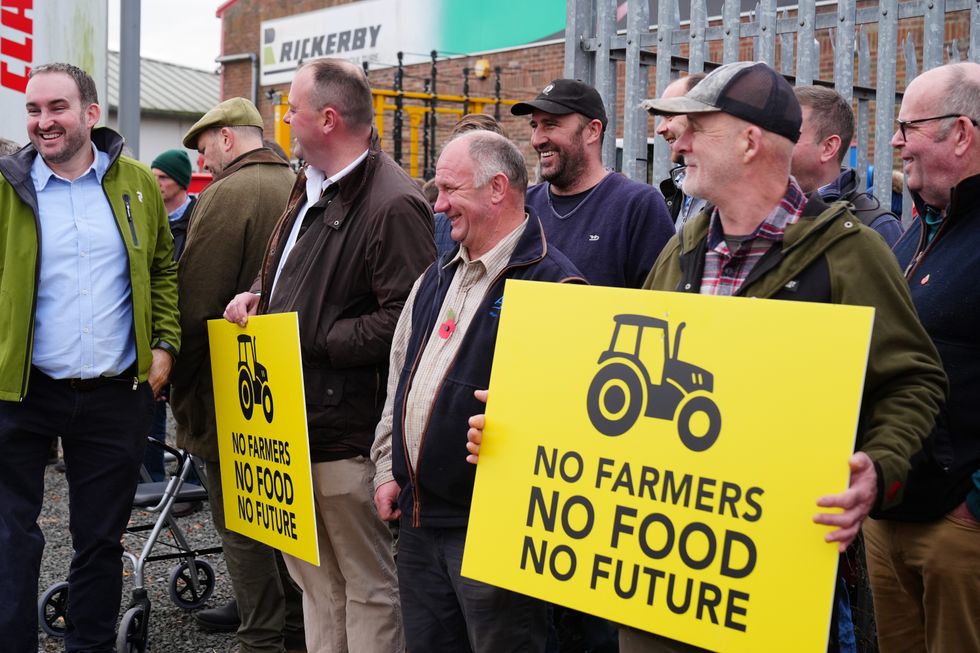British farmers are facing devastating collective losses of £600m following what has emerged as the second-worst wheat harvest in 25 years.
The dire situation has seen wheat production plummet to just 11.1 million tonnes in 2024, marking a dramatic decline from the 14 million tonnes harvested the previous year.
This agricultural crisis comes at a particularly challenging time for Britain’s farming community, which is already grappling with looming changes to inheritance tax rules affecting agricultural land.
Poor weather conditions have dealt a severe blow to the nation’s wheat production, with climate change being identified as a key factor in the disappointing harvest.

This agricultural crisis comes at a particularly challenging time for Britain’s farming community
ALDI
The stark figures, released by the Department for Environment, Food and Rural Affairs, paint a troubling picture for one of Britain’s most vital industries.
The severity of the harvest decline is particularly striking, with only the pandemic year of 2020 showing worse results in records spanning a quarter century.
Weather conditions severely hampered farmers’ ability to both sow their crops and maintain optimal growing conditions throughout the season.
Adding to the concerning picture, the total acreage dedicated to wheat cultivation dropped by 11 per cent.
These challenges have created a significant strain on Britain’s agricultural sector, with the £600million revenue shortfall representing a substantial blow to farming communities across the nation.
The impact has been particularly acute given that this year’s harvest ranks as the second-smallest in 25 years of recorded data.
Only the exceptional circumstances of 2020, during the height of the pandemic, produced worse results for British wheat farmers.
Tom Lancaster, from the Energy and Climate Intelligence Unit, highlighted the severity of the situation.
“This year’s harvest was a shocker, and climate change is to blame. Whilst shoppers have been partly insulated by imports picking up some of the slack, Britain’s farmers have borne the brunt of the second-worst harvest on record,” he said.
Lancaster emphasised the growing threat to the nation’s agricultural sector.
“It is clear that climate change is the biggest threat to UK food security. And these impacts are only going to get worse until we reduce our greenhouse gas emissions to net zero, in order to stop the warming that is driving these extremes,” he warned.
The agricultural challenges extended far beyond wheat production, affecting multiple crop varieties across Britain.

The crisis comes amid mounting tensions over planned changes to inheritance tax rules affecting agricultural land
PA
Matt Daragh, from the Agriculture and Horticulture Development Board, revealed the unprecedented weather conditions that plagued the farming season.
“Following the wettest September to May on record last season, cereal and oilseed rape production in the UK was considerably challenged, particularly winter sown crops,” he explained.
According to Daragh, total production of wheat, barley, oats and oilseed rape contracted by 13 per cent in 2024.
This brought the combined yield down to 20 million tonnes, marking a significant decline from the previous year.
Spring crops showed more resilience, though they couldn’t offset the broader agricultural downturn.
The crisis comes amid mounting tensions over planned changes to inheritance tax rules affecting agricultural land.
Farmers have taken to the streets, blocking major roads and protesting outside Parliament against modifications to Agricultural Property Relief.
From April, the longstanding protection allowing family farms to be passed down without inheritance tax will be curtailed.
Under the new rules, farmers can only pass land to their children tax-free if they survive for seven years after the transfer.
The National Farmers Union has raised serious concerns about these changes.
NFU president Tom Bradshaw issued a stark warning to MPs that some farmers may contemplate suicide.
“Those people that are in ill health or don’t believe they are going to live for seven years may well decide that they shouldn’t be here on April 2026,” Bradshaw cautioned.
The combination of poor harvests and tax changes has created unprecedented pressure on Britain’s farming communities.
Anyone who is in emotional distress, struggling to cope or at risk of suicide can call the Samaritans anonymously for free from a UK phone on 116 123 or go to samaritans.org.